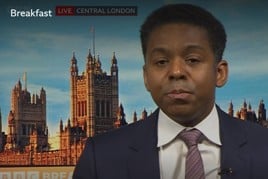Consumers who have witnessed new and used cars become significantly more expensive since 2020 are unlikely to beat a path to dealerships as a result of the National Insurance cut in Jeremy Hunt’s 2024 Spring Budget.
National insurance (NI) has been cut by a further 2 percentage points, so workers will pay 8% of their earnings between £12,570 and £50,270, instead of the 10% currrent rate and the 12% it was before autumn 2023. But tax thresholds, the amount they are allowed to earn before they start paying tax (and national insurance) and before some start paying the higher rate of tax, will remain frozen.
The Office for Budget Responsibility says that if that £12,570 threshold, in place since April 2021, had risen with inflation as normal workers would have had an extra £2,650 earnings to spend.
Chancellor Jeremy Hunt said the latest NI cut, effective from April, would be put about £450 pounds a year back in the pocket of an employed consumer and £350 pounds for someone self-employed.
 It is little help to convince some consumers, who have seen their living costs climb, that the time is right to look for a new or used car. In 2023 Auto Trader reported that the average list price of a new car had increased by £12,000, or 43%, since 2018, and although used car prices have dropped rapidly since October the average asking price of a used car remains some £3,000 higher than in January 2020.
It is little help to convince some consumers, who have seen their living costs climb, that the time is right to look for a new or used car. In 2023 Auto Trader reported that the average list price of a new car had increased by £12,000, or 43%, since 2018, and although used car prices have dropped rapidly since October the average asking price of a used car remains some £3,000 higher than in January 2020.
At automotive fintech firm iVendi, chief executive James Tew said: “With the used car market in reasonably strong health and yesterday’s figures showing that the new car market had its best February for 20 years, it’s probably unlikely that the government was ever going to provide any new forms of support for our sector in this Budget, even if there are various voices asking for more help during the process of electrification.
 “Really, the bigger issue is the general state of the economy and there was little here to change the view that has developed over recent months. While the reduction in National Insurance might make a few people more likely to swap their car, the truth is that we appear to be in the middle of a long period when growth is flatlining, and general consumer and economic confidence is similarly, largely in check. Whether the general election later this year will start to change that situation and bring a degree of optimism is an unknown.”
“Really, the bigger issue is the general state of the economy and there was little here to change the view that has developed over recent months. While the reduction in National Insurance might make a few people more likely to swap their car, the truth is that we appear to be in the middle of a long period when growth is flatlining, and general consumer and economic confidence is similarly, largely in check. Whether the general election later this year will start to change that situation and bring a degree of optimism is an unknown.”
At MHA Macintyre Hudson, its tax director Anthony McFarlin noted that pensioners, a crucial car-buying demographic for dealers, will not benefit from the NI reduction.
He added that the rate cut being enacted in this way is expected to have an impact on vehicle salary sacrifice schemes where the employees monthly earnings and the car benefit falls between £1,048 and £4,189.
In his speech chancellor Jeremy Hunt said that since 2010 the UK has grown faster than Germany, France or Italy, the three largest European economies, and according to the IMF the UK will continue to grow faster than all three of them in the next five years.
The Office for Budgetary Responsibility expects the economy to grow by 0.8% this year and 1.9% next year – 0.5% higher than their autumn forecast. After that growth rises to 2%, 1.8%, and 1.7% in 2028.
But in his response to Hunt’s budget speech, Labour leader Sir Kier Starmer said that per capita GDP growth was in fact lower than other major European states and he accused Hunt of using “sleight of hand” with his claims.
Starmer reminded the House of Commons that when Rishi Sunak was chancellor two years ago he promised a 1p cut to income tax would come in 2024, which has not materialised.
UK motor retailers would have welcomed measures that put more money back in consumers’ pockets.
Starmer also said the UK is still lacking a sustainable industrial strategy after 14 years of Conservative government.
- SEO Powered Content & PR Distribution. Get Amplified Today.
- PlatoData.Network Vertical Generative Ai. Empower Yourself. Access Here.
- PlatoAiStream. Web3 Intelligence. Knowledge Amplified. Access Here.
- PlatoESG. Carbon, CleanTech, Energy, Environment, Solar, Waste Management. Access Here.
- PlatoHealth. Biotech and Clinical Trials Intelligence. Access Here.
- Source: https://www.am-online.com/news/latest-news/2024/03/06/national-insurance-cut-does-little-to-help-consumers-cope-with-higher-cost-of-cars
- :has
- :is
- :not
- :where
- 000
- 1
- 14
- 179
- 2%
- 20
- 20 years
- 200
- 2010
- 2018
- 2020
- 2021
- 2023
- 2024
- 2028
- 268
- a
- About
- According
- accused
- added
- After
- ago
- All
- allowed
- also
- Although
- amount
- an
- and
- Anthony
- any
- appear
- April
- ARE
- AS
- asking
- auto
- automotive
- average
- back
- BE
- beat
- become
- been
- before
- being
- benefit
- BEST
- between
- bigger
- bring
- budget
- but
- by
- car
- cars
- ceo
- Chancellor Jeremy Hunt
- change
- check
- chief
- Chief Executive
- claims
- climb
- come
- Commons
- confidence
- conservative
- consumer
- Consumers
- continue
- convince
- Cost
- Costs
- crucial
- Cut
- dealers
- Degree
- demographic
- developed
- does
- dropped
- during
- earn
- Earnings
- Economic
- economies
- economy
- Effective
- Election
- electrification
- employed
- employees
- European
- Even
- EVER
- executive
- expected
- expects
- expensive
- extra
- fact
- Falls
- faster
- February
- few
- Figures
- fintech
- Firm
- five
- For
- Forecast
- forms
- France
- from
- frozen
- further
- GDP
- gdp growth
- General
- Germany
- going
- Government
- Grow
- grown
- Growth
- had
- Have
- he
- Health
- help
- here
- higher
- his
- House
- HOUSE OF COMMONS
- HTTPS
- hunt
- if
- IMF
- Impact
- in
- Income
- income tax
- increased
- industrial
- inflation
- instead
- insurance
- issue
- IT
- Italy
- ITS
- james
- January
- jeremy
- Jeremy Hunt
- jpg
- Labour
- lacking
- largely
- largest
- later
- latest
- leader
- likely
- List
- little
- living
- Long
- Look
- lower
- major
- make
- Market
- measures
- Middle
- might
- money
- monthly
- months
- more
- Motor
- National
- New
- next
- normal
- noted
- october
- of
- Office
- on
- Optimism
- or
- Other
- our
- over
- path
- Pay
- paying
- People
- per
- percentage
- period
- Place
- plato
- Plato Data Intelligence
- PlatoData
- pockets
- points
- pounds
- price
- Prices
- probably
- process
- promised
- provide
- put
- rapidly
- Rate
- really
- recent
- reduction
- remain
- remains
- Reported
- response
- responsibility
- result
- retailers
- right
- Risen
- Rises
- RISHI SUNAK
- s
- sacrifice
- Said
- salary
- says
- schemes
- sector
- seen
- showing
- significantly
- Similarly
- since
- Sir
- situation
- So
- some
- Someone
- speech
- spend
- spring
- start
- State
- States
- Still
- Strategy
- strong
- support
- sustainable
- swap
- tax
- than
- that
- The
- the UK
- their
- Them
- There.
- they
- this
- this year
- three
- threshold
- time
- to
- trader
- truth
- two
- Uk
- unknown
- unlikely
- used
- Used Cars
- using
- various
- vehicle
- View
- VOICES
- was
- Way..
- we
- welcomed
- when
- whether
- which
- while
- WHO
- will
- with
- witnessed
- workers
- would
- year
- years
- zephyrnet












